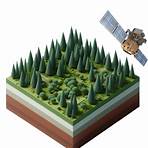MedicAnimal, the UK’s leading pet healthcare retailer, is warning motorists and gardeners about the consequences of using antifreeze and the potentially lethal effect it can have on cats and dogs. The Met Office has this week issued a severe weather warning to several parts of the UK with temperatures expected to drop below 0 degrees Celsius. Antifreeze is typically 95% ethylene glycol (EG) and diluted 1:2 or 1:3 with water when added to the car’s radiator or washer fluid container. Even a relatively small amount can prove lethal, one teaspoon (1.4ml) is enough to kill a cat and one tablespoon (4.4ml) for an average 25kg dog.
It also acts very fast, in many cases your pet can die within 24 hours and if you are not treating it within a few hours of ingestion, there is a serious chance of permanent kidney damage, usually fatal. Animal charity, Cat Protection reported 1,197 cases of anti-freeze poisoning between November 2012 and December 2014, an average of 50 deaths per month.
How to spot it?
The main signs to look out for within 30 minutes to 12 hours after ingestion:
- May drool saliva and look depressed initially and possibly vomiting
- They may then appear to recover, but a day later are unwilling to eat (kidneys now have physical crystal damage)
- Any evidence of green fluid (a fluorescent dye is usually added) around the muzzle/paws/base of tail (use a black light if you have one)
- Seeming wobbly, uncoordinated gait or seeming ‘drunk’
- Head tremors, increased urination and thirst (kidney damage)
If you suspect a poisoning, see your vet immediately.
Andrew Bucher, Chief Veterinary Officer at MedicAnimal, said: “There are many safety risks during the winter months, but this is one which is quite simply overlooked. Antifreeze, as well as car screen wash and brake fluid, are all very sweet tasting, meaning cats and dogs tend to lick it readily. Tragically, even the smallest of doses can prove lethal and many animals can suffer and die within 24 hours if emergency care is not provided. Ideally, I would like to see manufacturers change the product itself, however, in the meantime, I can only urge motorists and gardeners to keep products safely secured, check for leaks and be mindful if they do decide to use this during the cold spells. It leads to hundreds of unnecessary deaths and can easily be avoided. You wouldn’t want it to happen to a child, so why should a pet be any different.”
Switzerland banned ethylene glycol based coolants in supermarkets and general shops for the public in 1972. Instead, Propylene Glycol is used instead which is far less lethal to pets. In the UK, there is an online petition to add a bittering agent (commonly known as Bitrex or Aversion) to ethylene glycol anti-freeze products to make it unpalatable to pets and humans, as well as adding a clear warning on the external packaging.
















